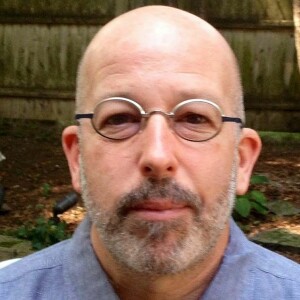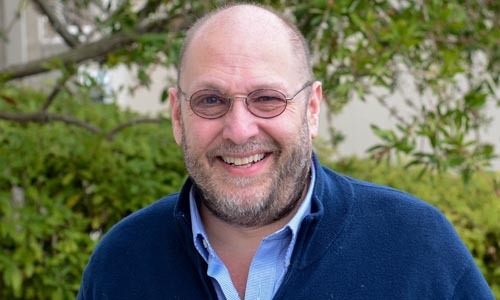Episodes

Thursday Feb 16, 2017
Enlisting the Immune System in the War on Cancer
Thursday Feb 16, 2017
Thursday Feb 16, 2017
The emergence of cancer immunotherapies, drugs that activate and enlist the immune system to fight cancer, has emerged as a promising approach to combat the disease in its many forms. Lawrence Fong, co-leader for the Cancer Immunotherapy Program at the University of California, San Francisco, stands at the intersection of several initiatives involving UCSF to better understand the immune system’s response to cancer and develop more effective drugs in the battle against it. We spoke to Fong about the potential of immunotherapies, the various efforts underway at UCSF, and what we known and don’t know about the immune system.

Thursday Feb 09, 2017
Why Scientists Must Also Be Advocates
Thursday Feb 09, 2017
Thursday Feb 09, 2017
The start of Trump administration, a new cabinet, and a new Congress are raising concerns within the scientific community about how the changes in Washington will affect the health of science and innovation in the United States. At issue is not only funding for research, but a range of policy decisions relating to everything from public health to climate change that some fear will not be informed by science. We spoke to Mary Woolley, president of Research!America, about the new administration, why it is critical for scientists to become advocates, and the planned March for Science in Washington, D.C. this April.

Thursday Feb 02, 2017
Sernova Eyes Range of Disease for Implantable Cell Technology
Thursday Feb 02, 2017
Thursday Feb 02, 2017
For a number of diseases that require chronic administration of a substance naturally produced by the body, patients may have to rely on regular injections or infusions. Sernova is working to free patients from these types of regimes with it combination device and cell therapy that implants a pouch that contains living cells that produce the missing hormone, factor or other substance. We spoke to Phil Toleikis, CEO of Sernvoa, about its technology, the challenges involved in such an approach, and the company’s initial focus on diabetes and hemophilia.

Thursday Jan 26, 2017
Stratus Wants to Demonstrate Its Telehealth Fluency
Thursday Jan 26, 2017
Thursday Jan 26, 2017
Telehealth, which encompasses an array of technologies to deliver healthcare, is a rapidly growing area. Stratus Video, a language services company, is making a push into telehealth where it sees a big opportunity to leverage its expertise and apply it to healthcare. We spoke to Lee Horner, president of the Stratus Telemedicine division, about telehealth trends, how its altering the practice of medicine, and whether it can deliver on the promise of improving care while reducing costs.

Thursday Jan 19, 2017
Regeneron Embraces Genetics as Fundamental to Drug Development
Thursday Jan 19, 2017
Thursday Jan 19, 2017
Drug discovery and development is a slow and costly process, but the Regeneron Genetics Center represents a drugmakers’ bet that harnessing large amounts of genetic data can point the way to better targets, greater success rates, and ultimately better drugs. We spoke to Aris Baras, vice president and head of the Regeneron Genetics Center ahead of the Precision Medicine World Conference 2017 in Silicon Valley about how large genetic studies are brining fundamental change to the drug development process, the approach Regeneron is taking, and why its becoming a necessary element of drug development today.

Thursday Jan 12, 2017
Despite FDA Setback, KemPharm Advancing Prodrug Pipeline
Thursday Jan 12, 2017
Thursday Jan 12, 2017
Last year, KemPharm was on its way to winning an FDA approval for its opioid Apadaz designed to deter users from snorting, injecting, or otherwise abusing it. But the regulatory agency stymied the company’s efforts when it declined to label it as an abuse-deterrent opioid. Apadaz is a prodrug that is converted to its active form through an enzyme present in the intestinal tract that releases the hydrocodone in it. The decision sent shares in KemPharm tumbling. Now, as the company works to resolve regulatory issues around Apadaz, it’s moving forward with the rest of its prodrug pipeline. We spoke to KemPharm CEO Travis Mickle about abuse-deterrence, the ongoing discussion with the FDA, the company’s prodrug pipeline.

Thursday Jan 05, 2017
Thursday Jan 05, 2017
In the realm of mental health, a lack of biologic measures for diagnosing and treating patients has at times made this an area where doctor’s subjective decisions can play a disproportionate role. Ehave is seeking to improve diagnosis and treatment of patients with its data-rich management, assessment, and remediation tools that sit on its cloud-based software platform. The company’s initial product focuses on ADHD, although it plans to roll-out other applications in the future. We spoke to Prateek Dwivedi, CEO of Ehave, about its platform, the problems the company is trying to address, and how digital technologies are changing the way doctors diagnose, treat, and interact with patients.

Thursday Dec 29, 2016
Biotech in 2016 and the Year Ahead with TheStreet’s Adam Feuerstein
Thursday Dec 29, 2016
Thursday Dec 29, 2016
With 2016 drawing to a close and the biotech industry gearing up for the annual JPMorgan Healthcare Conference in San Francisco, we continued our holiday tradition of checking in with Adam Feuerstein, senior columnist for TheStreet. We spoke to Feuerstein about the year in biotech that was, the winners and losers of 2016, and what to look for at the JPMorgan Healthcare Conference and beyond.

Daniel Levine
Daniel Levine is an award-winning business journalist who has reported on the life sciences, economic development, and business policy issues throughout his career. He is founder and principal of Levine Media Group, host of The Bio Report and RARECast podcasts, a senior fellow at the Center for Medicine in the Public Interest, and author of Global Genes’ annual NEXT report on emerging trends in the world of rare disease. From 2011 to 2014, he served as the lead editor and writer of Burrill & Company’s acclaimed annual book on the biotech industry. His work has appeared in numerous national publications including The New York Times, The Industry Standard, and TheStreet.com.

